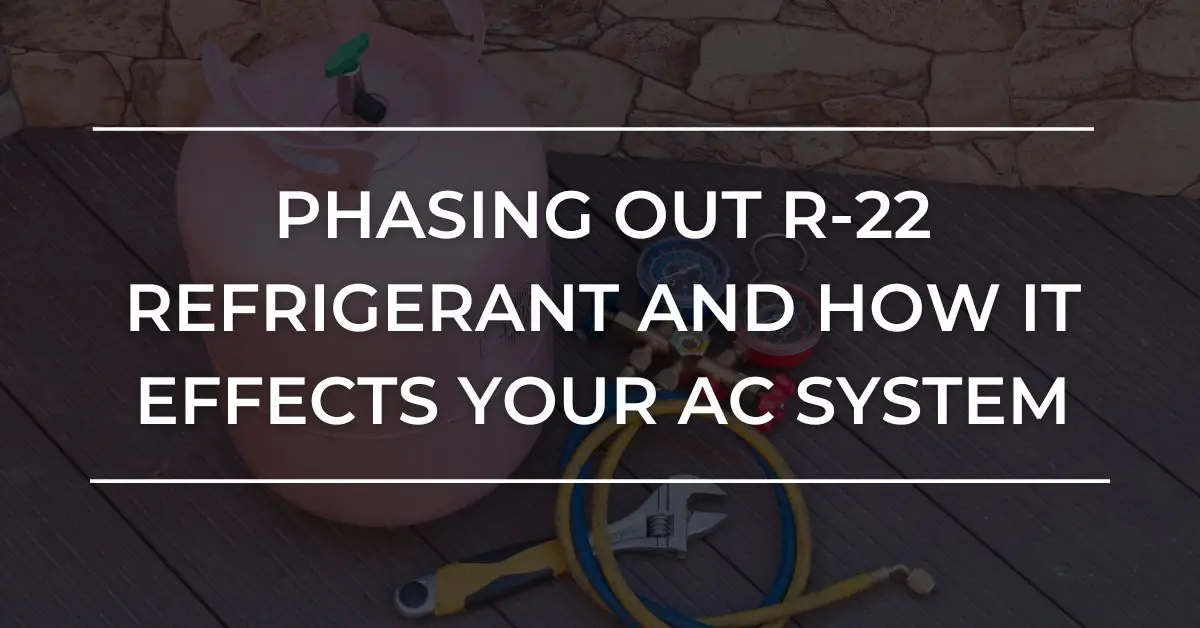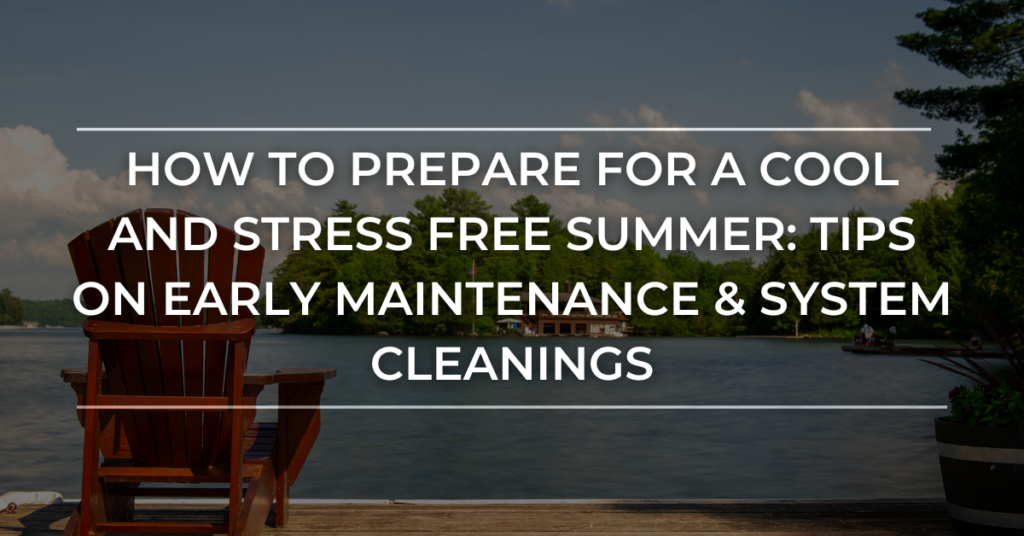
As the summer heat intensifies in North Carolina we rely heavily on our air conditioning systems to keep our homes cool and comfortable. If your AC unit is more than a decade old, it likely uses R-22 refrigerant, also known as Freon. This chemical has been a staple in air conditioning systems for many years but is now being phased out due to its harmful effects on the environment. Here’s what you need to know about the R-22 phase-out and how it affects you.
What is R-22 Refrigerant?
R-22 refrigerant is a type of hydrochlorofluorocarbon (HCFC) used in air conditioners and heat pumps to cool homes in North Carolina. It works by absorbing and releasing heat, which allows your AC system to maintain a comfortable indoor temperature. Although effective, R-22 has been found to have significant negative impacts on the ozone layer, leading to its phase-out.
Why is R-22 Being Phased Out?
The U.S. Environmental Protection Agency (EPA) has been gradually phasing out R-22 due to its ozone-depleting properties. When R-22 is released into the atmosphere, it contributes to the thinning of the ozone layer, which protects us from the sun’s harmful ultraviolet rays. This depletion has serious environmental consequences, including climate change and increased health risks from UV exposure.
To address these issues, the EPA banned the production and import of R-22 starting January 1, 2020. This move is part of a larger effort to eliminate all ozone-depleting substances by 2030.
How Do I Know If My AC Uses R-22?
If your air conditioner was manufactured before 2010, it likely uses R-22 refrigerant. To confirm, you can check the owner’s manual or look for a label on the outdoor unit that indicates the type of refrigerant used. If you’re still unsure, contact Carolina Comfort Air, and we can help you determine your system’s refrigerant type.
What If My AC System Uses R-22?
If your AC system still uses R-22, don’t panic. You can continue to use and maintain your unit as usual. However, it’s important to be aware that the supply of R-22 is dwindling, which means it will become more expensive and harder to find over time. HVAC technicians can still service your unit using recycled or stockpiled R-22, but this is not a long-term solution.
Should I Repair or Replace My R-22 AC Unit?
Deciding whether to repair or replace your R-22 air conditioner depends on several factors, including the age and condition of your system, the availability of R-22, and the cost of repairs. Here are some considerations:
- Repair: If your system is relatively new and in good condition, you may choose to repair it. Regular maintenance and prompt repairs can extend its lifespan and improve efficiency. However, as R-22 becomes scarcer, repair costs will increase.
- Replace: If your system is older or requires significant repairs, it might be more cost-effective to replace it. Newer units use environmentally friendly refrigerants like R-410A or the more advanced R-454B, which do not deplete the ozone layer. These modern systems are also more energy-efficient, which can save you money on your utility bills.
Benefits of Upgrading to a New AC System
Upgrading to a new air conditioning system has several advantages:
- Environmental Impact: New systems use refrigerants that are safer for the environment.
- Energy Efficiency: Modern AC units are more efficient, reducing your energy consumption and costs.
- Performance: Newer models offer improved cooling performance and advanced features like smart thermostats and better humidity control.
The phase-out of R-22 refrigerant is a necessary step to protect our environment. While it may pose challenges for homeowners in North Carolina with older AC systems, it also presents an opportunity to upgrade to more efficient and eco-friendly units. If you have any questions or need assistance with your R-22 system, Carolina Comfort Air is here to help. Whether you live in Clayton, Goldsboro, Wilmington, Fayetteville, Southern Pines, or anywhere in between, our team is ready to provide the expert service you need.
Contact us today to discuss your options and ensure your home stays cool and comfortable. For more information on the R-22 phase-out or to schedule a consultation, visit our website or give us a call. Let’s work together to create a more sustainable future while keeping your home comfortable all year round.




